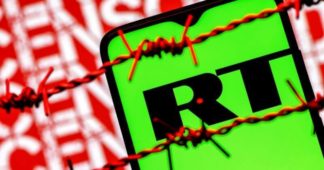By Maxim Goldarb *
An independent judiciary is one of the fundamental features and principles of true democracy. Even in ancient times, Aristotle wrote about this, and in the 18th century, Charles Montesquieu clearly outlined the division of state branches of power into three: legislative, executive and judicial, and each of them should be independent of the others.
The independence and qualifications of judges, their high moral and business qualities, the obligation to enforce court decisions – this is what many Europeans and Americans believe in, what society wants.
In turn, any regime that tries to become dictatorial, first of all, makes efforts to destroy the independence of the judiciary.
In accordance with Article 126 of the Constitution of Ukraine, the independence and immunity of judges are guaranteed, and influence on a judge in any way is prohibited. The judicial branch of government is independent of other branches of government.
However, in practice, these provisions of the Constitution have been grossly violated in recent years, and the judiciary is under enormous pressure.
Over the past 10 years, the judicial system of Ukraine has undergone four cardinal reforms, countless changes, and judges have undergone endless attestations and recertifications, dismissals, rotations, and moreover, persecution.
But, perhaps, the attempts of the authorities to destroy the remnants of judicial independence and completely subjugate the judiciary reached their apogee during Zelensky’s presidency.
Back in 2021, President Zelensky of Ukraine tried to take control of the Constitutional Court of Ukraine (CCU), which is a judicial body that evaluates the constitutionality of decisions of the president and parliament. In 2020, the Constitutional Court declared partially unconstitutional the judicial reform initiated by President Volodymyr Zelensky and subsequently adopted by the Verkhovna Rada, and also declared several articles of the Law “On the Prevention of Corruption” unconstitutional. All this caused Zelensky’s sharp dissatisfaction and threats from his office against the judges of the Constitutional Court.
The president does not have the authority to dismiss judges of the Constitutional Court, they are independent, and decisions on early termination of the powers of judges are taken only by the Constitutional Court itself in a few cases expressly stipulated in the Constitution. However, in order to remove judges not under his control from the court, the president issued a decree in March 2021 by which he tried to dismiss the head of the Constitutional Court Alexander Tupitsky and judge Alexander Kasminin. At the same time, the president grossly violated the law, criminally exceeding his powers. To do this, Zelensky issued a decree canceling the presidential decrees from 2013, by which these judges, in accordance with the Constitution, were appointed judges of the Constitutional Court.
The illegality of such actions of the president was so obvious and blatant that the Supreme Court satisfied the claims of Tupitsky and Kasminin, recognized them as illegal and canceled the relevant decrees of President Vladimir Zelensky.
Then, in retaliation for this, on May 27, 2022, at the request of the prosecutors of the Office of the Prosecutor General, Tupitsky, Chairman of the Constitutional Court, was put on the international wanted list on charges, attention (!), of illegal departure from Ukraine in March 2022, although a similar composition of the criminal crime does not exist.
The very wording of the stupid accusations against the head of the Constitutional Court testifies to the obvious engagement of his cases by the authorities, the illegal persecution of the judge, and the creation of a precedent of fear for any other Ukrainian judge who is trying to independently administer justice.
The work of the Constitutional Court was, in fact, blocked in 2022. And no one, neither the citizens of Ukraine nor the subjects of constitutional appeal, can actually use their right to apply to the Constitutional Court to check the constitutionality of presidential decrees and parliamentary laws.
Even more harshly, the authorities approached the solution of the “problem” of the District Administrative Court of Kyiv (OASK), whose judges were not going to become servants of the president’s office. The OASK was the court that considered the legality of acts of the highest officials of the state, including the president.
Thus, the District Administrative Court at one time: canceled the decision to increase electricity tariffs; declared it illegal to increase the price of gas for the population; canceled the decision to rename Moskovsky Prospect and General Vatutin Avenue in Kyiv in honor of the leaders of Ukrainian nationalists who collaborated with the Nazis – Stepan Bandera Avenue and Roman Shukhevych Avenue, respectively; recognized the symbols of the SS division “Galicia” as Nazi; and made many other decisions objectionable to the authorities.
On December 13, 2022, the Verkhovna Rada of Ukraine voted for bills No. 5369 developed by the office of the President on the liquidation of the Kyiv District Administrative Court and No. 5370 on the formation of the Kyiv City District Administrative Court instead: this is such a mechanism from the President and Parliament to destroy an independent court, aimed at its dispersal and dismissal of uncontrolled judges.
The Kiev City District Administrative Court, created by the new law, has not yet begun its work, and therefore citizens are practically denied the opportunity to appeal against decisions of the president and other higher authorities to restrict their rights.
Citizens’ access to justice continues to become more difficult due to the lack of judges themselves. As of January 2022, according to statistics, the shortage of judges in Ukraine was 2,039 people, and the shortage of court employees was 3,559 people; in more than 60 local general courts, justice is administered by only one judge; eight courts stopped working due to the absence of judges with the authority to administer justice. Thus, already before the start of the war, about 137,000 citizens were deprived of their constitutional right to judicial protection of their rights and freedoms.
This is due to institutional problems – two key bodies that make decisions on the appointment of judges do not work. In particular, the High Qualifications Commission of Judges (HQJC), which, due to changes in legislation adopted in November 2019, had not been working for 26 months by February 24, 2022.
Also, two days before the start of the war, the constitutional body, the High Council of Justice (HJC), was paralyzed, from which 10 members immediately resigned on February 22, 2022. Thus, about 60 state functions that they collectively carried out were stopped.
The HJC was paralyzed due to the voluntary termination of the powers of 10 of its members. The reason was that the High Council of Justice insisted that the powers of the Ethics Council (a body formed under the authority of Zelensky, which is designed to establish the compliance of a candidate for the position of a member of the High Council of Justice with the criteria of professional ethics and integrity, and half of which consists of foreign citizens), conducting them assessment, do not have a constitutional basis, such a body is not provided for by the Constitution of Ukraine.
The authorities, hiding behind the concept of “military secrets”, also began to actively close access to citizens to the register of court decisions. On February 24, 2022, the State Judicial Administration, the body responsible for the operation of the register and the reflection of court decisions in it, completely closed access to the register. It was resumed in June 2022, but human rights activists found that almost all criminal convictions over the past three years have disappeared from public access. So, for example, in the Kharkiv region, only 30 sentences for 2022 remained in the court register, and only 19 for the whole of 2021. If you believe the court register, then for the whole of 2020, all the courts of the Kharkiv region (with a population of more than 2 million people) issued only four verdicts, which is clearly impossible.
On December 21, 2022, human rights organizations filed an open appeal with the State Judicial Administration (SCA), in which they demanded to stop the negative practice of restricting access to documents in the Unified State Register of Court Decisions, restore access to the adopted court decisions and ensure the timely submission of procedural documents to the register.
The SCA did not have the authority to seize open access court decisions even because they had data on the location of legal entities – public authorities, as well as critical infrastructure. This is a direct violation of the Law of Ukraine “On Access to Court Decisions”.
In addition to the illegality of the seizure of decisions, the restriction of access to registers is a manifestation of the closeness of power, a step back from democratic values.
The Unified State Register of Court Decisions is an important source for journalists who investigate corruption offenses and abuses of power, which become doubly dangerous for the country during the war. In addition, access to court decisions is a daily necessity in the activities of lawyers, law enforcement officers, public activists and human rights defenders.
As a result of such a policy of severe pressure by the authorities of the judiciary, a lot of such absurd, frankly illegal decisions of the courts appear, such as, for example, sentences to people who are sentenced for “unpatriotic and anti-state” mobile phone conversations, and all opposition parties in Ukraine are banned by adopting fabricated, blueprinted judgments.
The systematic policy of the authorities in the field of justice is aimed at destroying the independence of the judiciary and leads to the deprivation of the citizens of Ukraine of the right to a fair trial and the usurpation of power by the president.
* Chairman of the Union of Left Forces (For New Socialism) of Ukraine
We remind our readers that publication of articles on our site does not mean that we agree with what is written. Our policy is to publish anything which we consider of interest, so as to assist our readers in forming their opinions. Sometimes we even publish articles with which we totally disagree, since we believe it is important for our readers to be informed on as wide a spectrum of views as possible.










